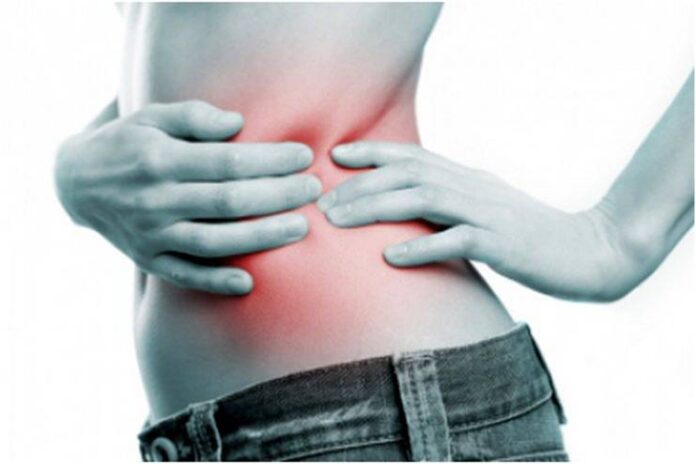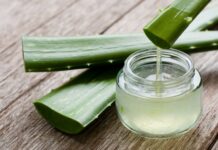Affiliate Disclaimer
Some links in this article are affiliate links. We may earn a small commission if you make a purchase through these links, at no extra cost to you. We only recommend products we find useful to our readersKidney stones, also known as renal lithiasis, are painful mineral deposits in the urinary system. Their prevalence has increased due to modern lifestyle habits and dietary changes.
Small stones can be dissolved naturally, but larger stones need medical intervention.
In this article, we will explore the types, causes, symptoms, and diet suggestions for kidney stones to help you better understand and manage this condition.
What are Kidney Stones?
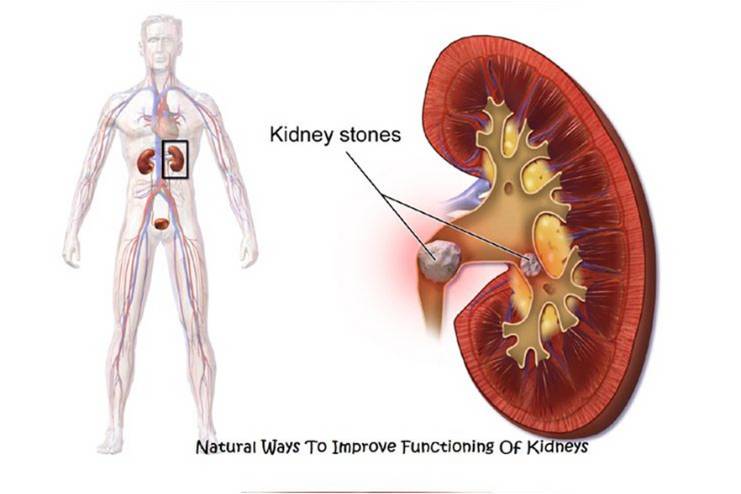
Kidney stones, medically termed renal lithiasis, are solid mineral depositions of salts that primarily form inside the kidneys. However, they can also form in other parts of the renal system, including the ureters, bladder, or urethra.
Causes vary from person to person, depending on diet, lifestyle, and stress levels. Kidney stone treatment without surgery is an option if the stone is detected in the early stages. It can be dissolved and excreted; if not, minor surgery can help remove it.
Kidney stones are painful and can negatively impact the body if left untreated for an extended period. The primary cause of kidney stones depends on the type of kidney stone you have.
Types of Kidney Stones
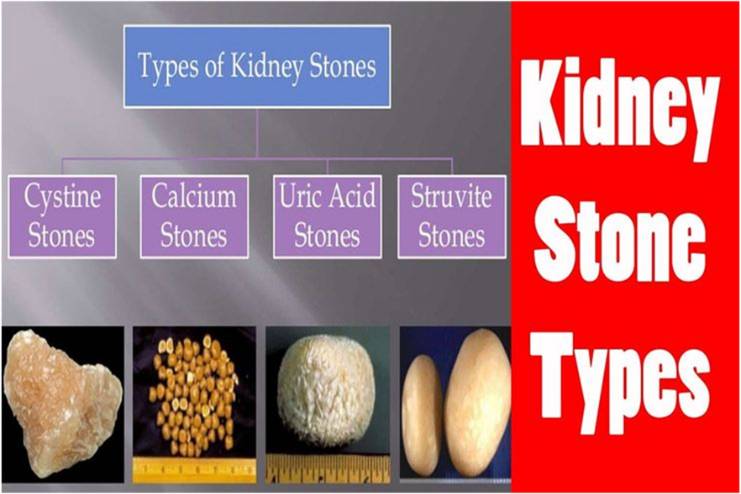
Most kidney stones are not just little blobs of crystal deposition. They vary depending on your lifestyle. Depending on the kind of crystal deposition, there are four types of kidney stones, which include:
- Calcium
The most common type of kidney stone is primarily caused by the excessive buildup of calcium oxalate in and around the kidneys. In some cases, the deposits may also consist of calcium maleate or calcium phosphate.
A significant factor contributing to kidney stones is the consumption of foods high in oxalate. Oxalate combines with calcium in the body to form crystals that are difficult to excrete. It’s important to note that it’s not merely the excess calcium that leads to kidney stones, but rather the surplus of oxalate. Adequate calcium in the body can actually reduce the likelihood of developing kidney stones.
Some foods that are rich in oxalate include:
- Beetroot
- Potato chips and French Fries
- Nuts, including Peanuts, Almonds, and Cashews
- Spinach
- Chocolate
- Okra
- Sweet Potatoes
- Raspberries
- Uric Acid
This type of kidney stone is primarily observed in men who have gout or have previously undergone chemotherapy.
These kidney stones are caused by a higher concentration of purines in the diet. Purines are colorless compounds found in high levels in foods such as fish, meat, and shellfish.
When purines break down in the body, they can increase the acidity of urine, leading to issues such as the formation of uric acid kidney stones.
- Struvite Stones
Struvite kidney stones are more common in women compared to uric acid kidney stones. These stones typically develop as a result of urinary tract infections (UTIs), which can lead to painful blockages in the urinary tract.
Early diagnosis is crucial, as it allows for timely intervention that can effectively dissolve and eliminate struvite kidney stones naturally. This type of kidney stone is associated with an underlying kidney infection, so treatment for these stones is closely linked to addressing the infection itself.
- Cystine
This specific variant of kidney stones is rare and can affect both men and women. It is primarily caused by a condition known as cystinuria where the cystine leaks from its normal site of secretion to the urine.
Causes of Kidney Stones
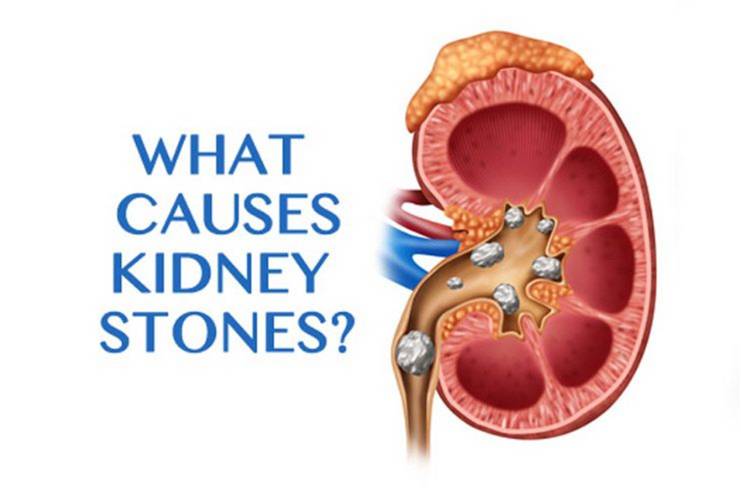
Experts agree that the primary cause of kidney stones is dehydration, which leads to reduced urine output. This concentrated urine allows minerals and salts to form crystals, which can eventually solidify into stones.
Other factors contributing to the development of kidney stones include:
- Increased Urinary Acidity: An elevated acidity in urine can promote the formation of certain types of kidney stones, such as uric acid stones.
- Medical Conditions: Certain health issues, such as Crohn’s disease, can increase the risk of kidney stones by affecting the absorption of nutrients and causing changes in the composition of urine.
- Urinary Tract Infections (UTIs): Chronic or recurrent UTIs can lead to the formation of struvite stones, a type of kidney stone that forms in the presence of infection.
- Hyperparathyroidism: This condition, characterized by an overactive parathyroid gland, can lead to higher calcium levels in the blood and urine, contributing to the formation of calcium-based stones.
- Medullary Sponge Kidney: A genetic disorder that affects the kidneys’ structure and function, increasing the likelihood of stone formation.
- Dent’s Disease: A rare genetic disorder that affects the kidneys’ ability to filter certain substances, raising the risk of kidney stones, particularly in males.
By understanding these causes, individuals can take steps to reduce their risk, such as staying hydrated, managing underlying health conditions, and seeking medical advice when necessary.
Symptoms of Kidney Stones
Many people suffering from kidney stones often don’t get diagnosed until the condition has progressed to a surgical stage. This is because the symptoms can be mistaken for general abdominal discomfort, leading individuals to dismiss or delay seeking medical attention. As a result, kidney stones may go unrecognized until they reach a more severe stage, prompting the need for intervention.
Common symptoms of kidney stones include:
- Severe Abdominal and Groin Pain: One of the hallmark symptoms of kidney stones is intense pain, often starting in the back or side, and radiating to the groin area. This pain may come in waves and can vary in intensity as the stone moves through the urinary tract.
- Hematuria (Blood in Urine): Blood in the urine is a common sign, as the stone can scrape the lining of the urinary tract, causing bleeding.
- Reduced Urine Output: Kidney stones can obstruct the urinary tract, leading to a decrease in urine production or difficulty in passing urine.
- Nausea, Vomiting, and Dizziness: These symptoms often accompany the pain and result from the body’s response to the intense discomfort or a blocked urinary tract.
- Painful Urination: A burning or sharp sensation when urinating can occur, particularly if the stone is located near the bladder or urethra.
- Fever and Chills: If a kidney stone causes an infection, it can lead to fever, chills, and other signs of infection, requiring immediate medical attention.
Recognizing these symptoms early can help prevent the condition from worsening and may allow for less invasive treatment options.
How to Treat Kidney Stones
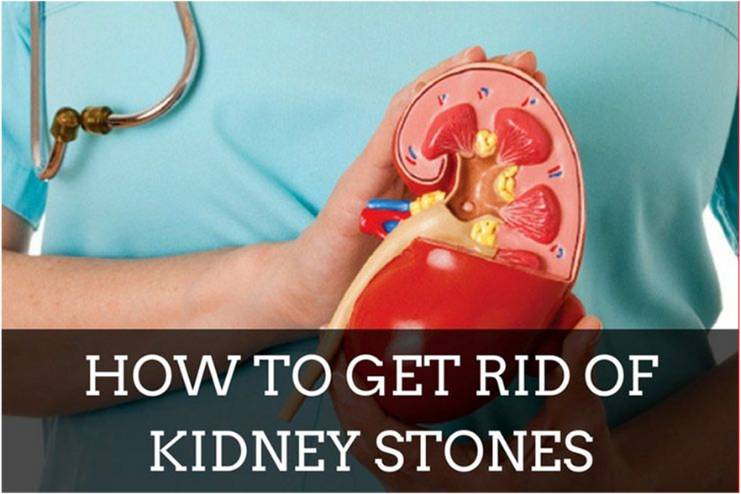
Many individuals with a history of kidney stones are all too familiar with the excruciating pain associated with passing a stone. Fortunately, there are several treatments available—both at home and through medical intervention—that can help alleviate pain and facilitate the passage of kidney stones.
Here are some common treatment options for managing kidney stones:
Home Treatments:
- Increase Water Intake: Staying hydrated is one of the most effective ways to help pass a kidney stone. Drinking plenty of water throughout the day helps dilute the urine, making it easier for the stone to move through the urinary tract and eventually pass.
- Consistent Monitoring: It’s important to monitor the progression of symptoms and any changes. This includes tracking the pain, urine output, and any signs of complications such as blood in the urine or fever.
Read More: 25 Natural Remedies for Kidney Stones
Medications:
- Non-Steroidal Anti-Inflammatory Drugs (NSAIDs): Over-the-counter medications like ibuprofen or naproxen can help reduce pain and inflammation associated with kidney stones.
- Narcotics: For severe pain, prescription pain relievers (narcotics) may be necessary to manage discomfort, especially if the stone is large or causing significant blockage.
- Diuretic Drugs: In certain cases, diuretics may be prescribed to help the body pass the stone more quickly by increasing urine production.
Medical Procedures:
- Extracorporeal Shockwave Lithotripsy (ESWL): This non-invasive procedure uses high-energy sound waves to break larger kidney stones into smaller pieces, making it easier for the body to pass them.
- Laser Lithotripsy: This procedure uses laser energy to break up kidney stones into tiny fragments, which can then be passed more easily.
- Microsurgery: In more severe cases, surgical intervention may be necessary to physically remove the stone or break it down into smaller pieces. This is usually considered when other treatments have not been effective.
Each treatment plan will depend on the size, type, and location of the stone and the individual’s overall health. It’s important to consult with a healthcare provider to determine the most appropriate course of action for treating kidney stones.
Foods to Eat and Avoid For Kidney Stones
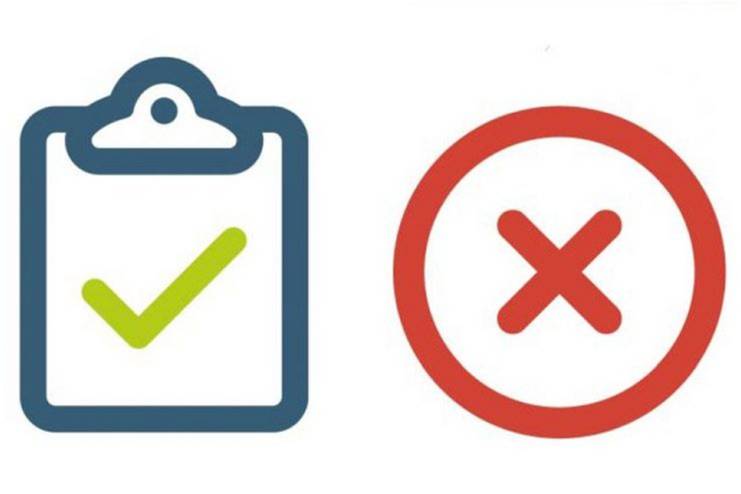
Diet plays a crucial role in renal health, especially in kidney stones. A lack of proper diet most often contributes to kidney stones. Hence, it is a must to understand what is good for you and what is not if you are looking for ways to get rid of kidney stones.
Some of the common foods that you should include in your diet include:
- Citrus Fruits and Juices: Citrus fruits and their juices help dissolve kidney stones naturally. Hence, they are a fantastic kidney stone home remedy. Increase the intake of such fruits in your diet if you have kidney stones.
- Calcium: Calcium intake needs to be increased because lack of calcium often increases the concentration of oxalate, one of the primary causes of kidney stones. Include healthy sources of calcium like milk, cheese, other dairy products, nuts, and molasses.
- Water: Water intake needs to be increased because if you want to pass kidney stones at home, you must ensure you urinate more to flush the kidney stones out.
Some common foods that you should avoid include:
- Salt: Your salt intake needs to be lowered because excess salt in the body draws out water into the bloodstream, thereby reducing the frequency of urination. This is an important factor for kidney stone treatment.
- Animal Proteins: Animal proteins like meat and fish contain a high percentage of purine, one of the most common factors contributing to kidney stones. This is the primary reason one needs to lower animal protein intake to help treat kidney stones.
- Carbonated Drinks: Avoid carbonated drinks or any form of fizzy drinks and switch to juices instead
- Oxalate: Avoid foods with high oxalate content, like nuts, beets, chocolate, spinach, and rhubarb.
How to Prevent Kidney Stones
To ensure you prevent kidney stones, there are a few lifestyle prevention tips you can include in your daily routine.
- Hydration: Keep yourself properly hydrated at all times
- Diet: Focus on your diet and exclude foods rich in oxalate and purines
- Urinate Frequently: Never avoid urination because it can put pressure on the renal system
- Exercise: Exercise can help by flushing out the unwanted toxins from the body
When to Visit a Doctor for Kidney Stones

Diagnosing kidney stones requires professional medical evaluation. While home treatments can be effective in managing the condition, they should only be considered after a doctor has assessed your symptoms, medical history, and overall health to determine the most appropriate treatment plan.
If you experience persistent pain along with any of the other common symptoms of kidney stones—such as blood in the urine, nausea, or difficulty urinating—it is important to consult a doctor rather than dismiss the symptoms. Early medical intervention can help prevent complications and guide you toward the right course of action.
In the early stages, certain natural remedies and lifestyle changes, such as increased water intake, may help dissolve smaller stones or ease the passage of larger ones. However, if the stones are too large, cause significant blockage, or lead to complications like infection, professional medical treatment is necessary. In such cases, surgical intervention or advanced procedures may be required to remove or break up the stones.
Prompt medical attention is crucial to ensuring proper diagnosis, avoiding severe complications, and receiving the most effective treatment tailored to your specific condition.
Conclusion
Kidney stones are a painful and often recurring condition that can affect anyone, but understanding their causes, symptoms, and treatment options can significantly improve outcomes. Dehydration, medical conditions, and certain lifestyle factors are common contributors to stone formation, and recognizing the symptoms—such as severe abdominal pain, blood in the urine, and painful urination—can help in early detection.
While home treatments like increasing water intake and using pain-relieving medications can provide relief, it’s essential to seek professional medical advice, especially if symptoms persist or worsen. Early diagnosis through consultation with a doctor is key to preventing complications and determining the best course of action, whether it’s conservative management or more advanced treatments like shockwave therapy or surgery.
By staying vigilant and seeking appropriate care, individuals can manage and reduce the risk of kidney stones, improving both their quality of life and long-term kidney health.
Frequently Asked Questions

1. What does it feel like when a kidney stone passes?
A. In the early stages, kidney stones may not cause pain, making them difficult to detect. However, when the stone moves from the kidney into the ureter, it can cause intense pain as it travels through the narrow urinary tract. This pain is often described as sharp, cramp-like, and may come in waves. Many people experience significant discomfort in the back, side, or lower abdomen, and the pain can radiate to the groin area.
In addition to pain, you may also experience a burning sensation while urinating. While smaller stones may pass naturally with home remedies like increased water intake, larger stones or those causing severe symptoms often require medical intervention. Regardless of the size, passing a kidney stone is typically a painful experience, but the pain usually subsides once the stone has passed.
2. How long does it take for kidney stones to pass?
A. Most small kidney stones, which measure around 5-6 mm in diameter, take a few days to weeks to pass, while the slightly larger ones take around a month or month and a half to pass out of the body completely.
3. Are kidney stones dangerous?
A. While kidney stones may not seem immediately dangerous, they can lead to serious complications if left untreated. Over time, untreated stones can cause persistent pain, block the urinary tract, lead to infection, or damage the kidneys. In some cases, large stones may require surgical intervention or other medical procedures to remove or break them up.
Kidney stones are becoming increasingly common due to factors such as stress, dehydration, and poor dietary habits. Proper hydration, a balanced diet, and timely medical care can help reduce the risk of complications and protect kidney health.
4. Can kidney stones cause kidney failure?
A. Kidney stones can impact kidney function, particularly if they cause a blockage in the urinary tract or lead to repeated infections. While kidney failure due to kidney stones is rare, it can occur in severe cases where stones are left untreated for a prolonged period.
Chronic obstruction or damage to the kidneys can result in reduced kidney function over time. However, most kidney stones are diagnosed and treated before they cause such serious complications. Early detection and prompt treatment are key to preventing long-term damage and preserving kidney health.
In this Article















